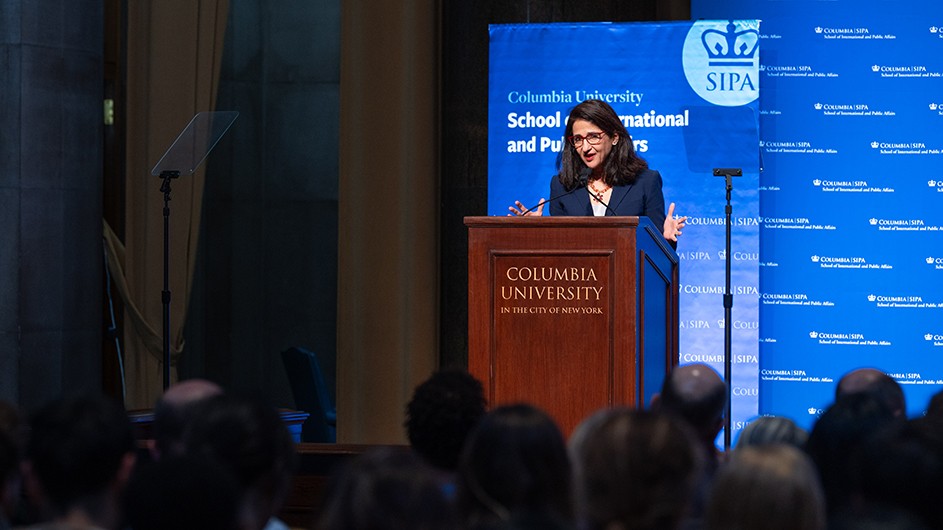So often these conversations end up being about “What are Columbia’s values?” I think it’s important to reassert those values during turbulent times.
One thing that is sacrosanct is the intellectual freedom of our students and faculty to debate issues and come to their own views. It’s our job to teach people how to think, not what to think. This is an essential Columbia value. And this, in practice, is remarkably difficult work, as the past two months have shown all of us since everything we say is interpreted through a political lens and then distorted and amplified through social media.
Nevertheless, it is our job to honor our mission of education and research and engage with each other to help find solutions. Here, at a university, the question should not be, “What side are you on?” Instead, it can be, “What can we learn from history? What are the political, economic, and social issues? How does literature and the arts inform the debate?” Here is a place where our students can discover the many complex sides to every issue. That is also a Columbia value.
None of this is possible without a commitment to thoughtful, rigorous debate that respects our collective rights to learn, work, and live together, free from bigotry, intimidation, and harassment. It means applying rules of conduct fairly to all, because everyone has a right to feel safe, welcome, and heard at Columbia.
Creating an environment where people feel challenged and learn to navigate the discomfort that comes with that – another Columbia value.
It is not okay to cast civility aside because the moment is too heated. We must cultivate a university culture that pushes back on the forces that seek to divide us. A culture that encourages empathy, not personal attacks on individuals or identities. Learning to speak, and listen with respect, that is a cherished Columbia value.
Over the months ahead we will be launching a set of initiatives that will encourage dialogue across difference to foster discussion and activities across Columbia that bring people together. Events like today are an important step in modeling the kind of intellectual debate and humane behavior that we aspire to.
